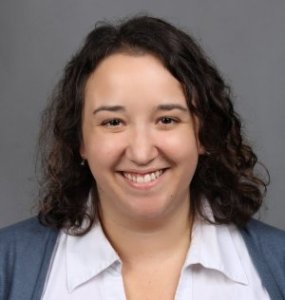May 8 2014
Stephanie A. Majewski, an experimental particle physicist at the University of Oregon, is among 35 U.S. scientists chosen to receive funding under the U.S. Department of Energy's Early Career Research Program.
 Stephanie A. Majewski
Stephanie A. Majewski
The now five-year-old program is designed to bolster the nation’s scientific workforce by providing support to select researchers during the crucial early career years, when many scientists do their most formative work. This year's recipients come from 18 universities and 17 of the DOE's national laboratories.
University-based researchers will receive at least $150,000 per year to cover summer salary and research expenses. For researchers based at the national laboratories, where DOE typically covers full salary and expenses of laboratory employees, grants will be at least $500,000 per year to cover year-round salary plus research expenses. The research grants are planned for five years.
Majewski, an assistant professor, joined the UO Department of Physics in 2012 after five years as a postdoctoral research associate at the Brookhaven National Laboratory. She was actively involved as part of the Brookhaven lab's team in the ATLAS experiment at the Large Hadron Collider in Geneva.
At the UO, she continues working at ATLAS. She is installing demonstration hardware into the detector for the next phase of experiments when the Large Hadron Collider resumes full operations next year. Her research interests include high-energy physics and supersymmetry, which proposes that each fundamental particle has a more massive, not-yet-discovered partner.
Majewski, a member of the Oregon Center for High Energy Physics, earned a doctorate in applied physics in 2007 from Stanford University. As an undergraduate student at the University of Illinois at Urbana-Champaign, she initially was interested in computer science and chemistry, but an introduction to dark matter and the Higgs boson led her into physics. She earned a bachelor's degree in physics from Illinois in 2002.
"By supporting our most creative and productive researchers early in their careers, this program is helping to build and sustain America's scientific workforce," said Patricia M. Dehmer, acting director of DOE's Office of Science, in a news release issued May 7. "We congratulate this year's winners on having competed successfully for these highly selective awards, and we look forward to following their accomplishments over the next five years."
Majewski's proposal was selected for funding by the DOE's Office of High Energy Physics.